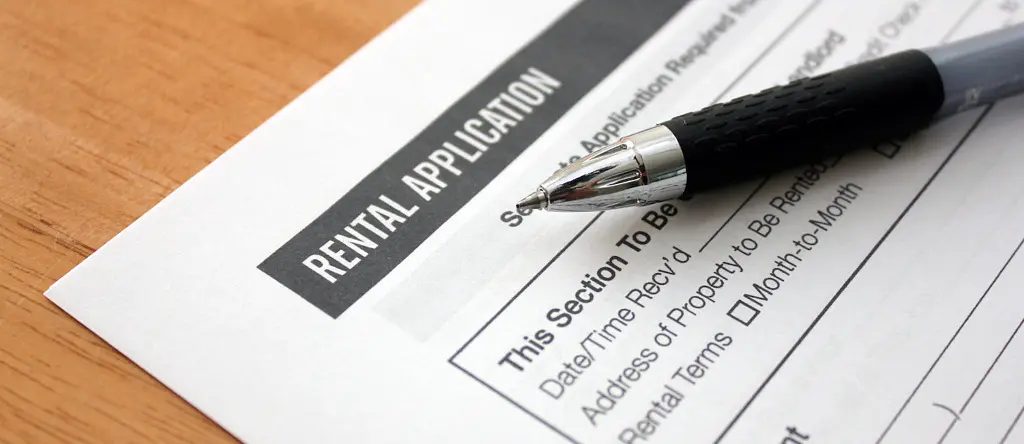The two things I hate the most about adult life are:
- Car Shopping
- Moving
Since moving to Japan four years ago, thankfully one of those two has become an unnecessary thing of the past. But when I got a new job and had to move halfway across the country from northern Miyagi to Saitama with only a month to make it all happen…well — it goes without saying there were some challenges. So for our readers who are currently living in Japan, those in the west considering moving here, or those curious about some of the negatives that come with the territory, here are the key things about moving in Japan that I wish I had known when I accepted my new day-job.
Guarantor Fees and Security Deposits Work Differently

Real estate agencies almost all require guarantors. That means that in the event that you don’t pay your rent for whatever reason they already have a full month’s pre-deposit to pull from. It’s essentially the same as a security deposit in the US, but the practice and execution of it in Japan can be very different. Depending on the landlord and real estate company they may require another person to sign the lease with you (family or friend) and they act as your guarantor, meaning they pay your late rent. In this case, this person is also listed as someone that roughly translates as an “emergency contact” and is very easily confused with what we use that term for in the west. Always clarify with the agency what is expected of the “emergency contact.”
Moving Services are Overbooked and Outrageously Expensive

Spring is the prime moving season not just for teachers. Every major company in almost every industry does their largest hiring and transferring sessions in the spring — which means a lot of people are moving in Japan, at the same time. Most moving services are only meant to do jobs across town — not across the whole prefecture, and especially not the whole country. So if you’re a bit late to the scheduling most companies will outright refuse your request due to over-booking. Those who can make it happen… well, expect to pay a lot. Because it’s such a busy season, the price of all services skyrocketed. For my single-person apartment, I was told the job would cost the equivalent of $3,500 (USD).
A quick pretend shopping spree on Amazon JP showed that I could refurnish my entire apartment for less than half that (which is what I did). So, be prepared to throw out a lot of stuff, and mail a dozen boxes through the national postal service for WAY cheaper.
Just Apply for the Apartment Sight-Unseen

That might sound like the advice of a lunatic, but in Japan, once you’ve been inside three different apartment layouts you’ve really been inside them all. You really won’t need to look at every apartment to get ideas of floorplans or how big each room is. All that will matter is its proximity to public transport and your personal needs like a grocery store (which you can easily all find via Google Maps). Plus, applications can take up to two weeks to process. If you’re in a hurry then you might not have time to see every possible location you have in mind.
As stated earlier, everyone moves in the spring. That means many people are looking for a new place to live, and they will take what they can get as fast as possible. After I accepted my new job, the next day I put together a small mini-tour of six apartments in the area I’d be moving to. The following day I went down to the area to begin my search only to be told that all but one had been applied for and taken in the 24 hours since contacting and arranging to meet the real estate agents. If you can’t get to view an apartment right away, it’ll be gone, quick. This brings me to my next piece of advice…
Make Friends Wherever You’re Moving To — FAST

A lot of real estate companies and landlords can be very iffy when renting to foreigners, especially in Tokyo and the surrounding areas, even if the foreign renter can communicate smoothly in Japanese. However, visiting the office with a Japanese friend or at least someone who is a fluent speaker with long-term residency who can act as an in-between does help persuade agents. Also, I must admit, I wouldn’t have found my new apartment without a friend pulling me into a random real estate office we saw on the side of the road and asking if they had anything open that met my needs.
Turning On the Utilities Isn’t Hard

When you have to get your utilities turned on or off at your new and old place it means you usually have to call the electric or gas companies yourself. However, most might have an online service request form you can use if your Japanese skills aren’t that great (or maybe you’re like me and you have phone anxiety when using your second language). If not — then it’s really not as stressful or complicated to do it over the phone. So long as you speak to an agent and can at least say that you’re moving, all you need to be able to communicate is general time expressions, numbers, your address, and your customer ID number (usually printed on your bills) and they should be able to take care of the rest on their own.
You Have to Pay to Throw Away Big Garbage

Like I said earlier, I ended up throwing away a lot from my old apartment. Japan is a country that tries to recycle everything it can in its garbage system. You can’t just haul a couch or a fridge away to the dump like in the US. Japan’s garbage system is rather infamous for how complicated it can be in order to recycle everything. So, you have to call and arrange the local garbage service to pick everything up not considered your typical garbage/recyclables. How much it costs to dispose of depends on each individual item. I ended up paying about $120.00 to throw away practically my entire living space and kitchen. You can always try your luck taking old furniture and appliances to a second-hand store but odds are, if it’s too old or not in season (don’t bother trying to sell a kotatsu in the spring) they will refuse to take your belongings off your hand.
Arrange the Internet Transfer as Soon as Possible

Or else you’ll be like me — stuck without internet service for nearly two weeks and relying on internet cafes, Starbucks, and your cellular data plan.
And so, with my big adventure in moving in Japan out of the way, there’s a lot of catching up to do here. Time to return to your regularly scheduled content. It’s great to be back.














